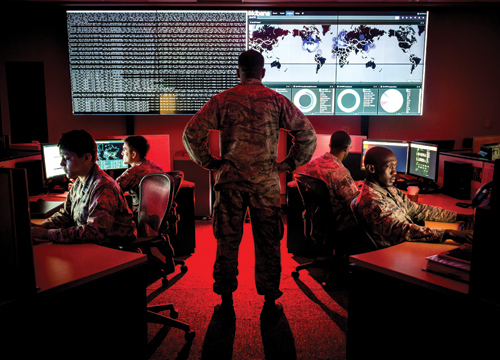Colorado, USA -- The US Air Force Research Lab (AFRL) Space Vehicles Directorate has awarded space engineering company Saber Astronautics a contract to develop new capabilities for space operations. Located in Kirtland Air Force Base in New Mexico, the Space Vehicles Directorate serves as the Air Force's "Center of Excellence" for space technology research and development. Under the contract Saber will leverage capabilities in the Predictive Ground station Interface (PIGI) in modelling large constellations of satellites and how satellites behave. The contract comes during an early renaissance in the space operations community which is expecting rapid growth in the small satellite market, quadrupling the volume over the next five years. Preparations include new ways to detect and locate spacecraft and understand how they can be kept safe as space becomes more congested.
While the US Air Force prefers only to service the military, mishaps in the civilian space sector can cause unintended risks outside of government control. Examples include satellite collisions which create dangerous debris fields and so called ‘zombie satellites’ where an actively transmitting satellite loses control potentially downing neighbouring satellites with signal noise. Therefore, they reached out to Saber Astronautics for dual use operations software which allows them to track space objects in ways useful to their mission but can also benefit the commercial sector.
“This project reflects a big change in US strategy, and I think for the better,” said Dr Jason Held, Saber Astronautics’ CEO. “They are moving away from expensive bespoke software which is tough to train to a commercial solution that can scale. It frees the US Air Force to be Space Warriors instead of Space Cops. We’re honoured to be a part of that story.”
Saber Astronautics has nearly a decade of experience in applying machine learning to diagnostics, having demonstrated the technology previously on several NASA and commercial spacecraft. A commercial grade prototype for PIGI is sold online to customers in the small satellite community and as a service to larger enterprise customers.
Funding is provided by the Air Force Research Laboratory (AFRL) via the System of Systems (SOSSEC) Inc., a New Hampshire based industry consortium. SOSSEC received a potential $99m Other Transaction Agreement for prototypes in command, control, communications, and cyber, intelligence, surveillance, and reconnaissance (C4ISR) information sharing information systems.

